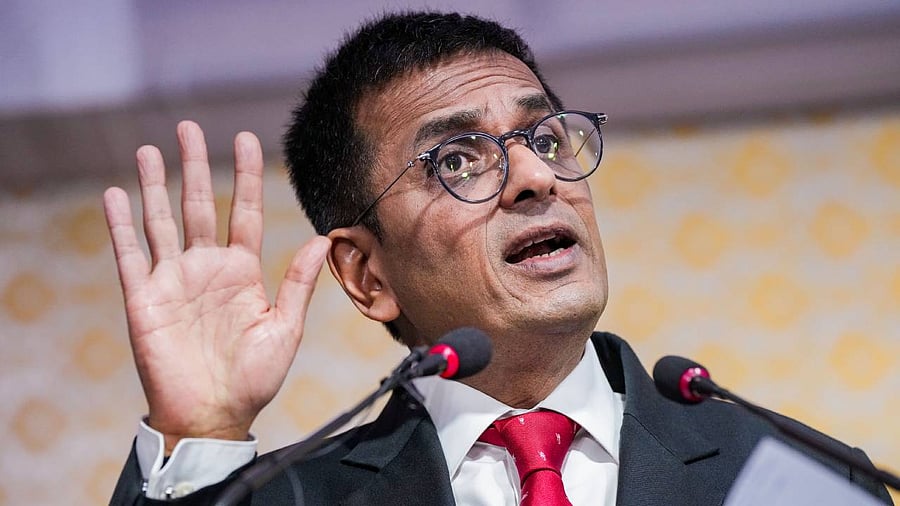
Chief Justice of India D Y Chandrachud on Saturday said the government must encourage families to report about sexual abuse of children even when the perpetrator is a family member as it remains a hidden problem due to culture of silence.
Speaking at a two-day national programme on the Protection of Children from Sexual Offences (POCSO) Act, the CJI said it is an unfortunate fact that the criminal justice system functions in a way that sometimes compounds the victims’ trauma and the executive must therefore join hands with the judiciary to prevent this from happening.
“The long-lasting implications of child sexual abuse make it imperative for the state and other stakeholders to create awareness regarding the prevention of child sexual abuse and its timely recognition and the remedy available in law. Children must be taught the difference between safe touch and unsafe touch. While this was previously couched as good touch and bad touch, child rights activists have urged parents to use the word safe and unsafe because the word good and bad have moral implications and may prevent them from reporting the abuse," he said.
The CJI said there is an urgent need to ensure that the so-called honour of the family is not prioritised above the best interest of the child.
In his speech, Justice Chandrachud also urged the legislature to take into consideration the growing concern around age of consent under the POCSO Act.
“You are aware that the POCSO Act criminalises all sexual acts among those under 18 regardless of whether consent is present factually among the minors, because the presumption of the law is that there is no consent among those below 18," he said.
“In my time as a judge, I have observed that this category of cases poses difficult questions for judges across the spectrum. There is a growing concern surrounding the issue which must be considered by the legislature in view of reliable research by experts in adolescent healthcare. I should leave this topic right here as this topic is very vexed as we see in courts everyday,” he added.
The CJI said the families of victims are immensely hesitant to file a complaint with the police so one must be very careful about entrusting excessive powers to the police.

